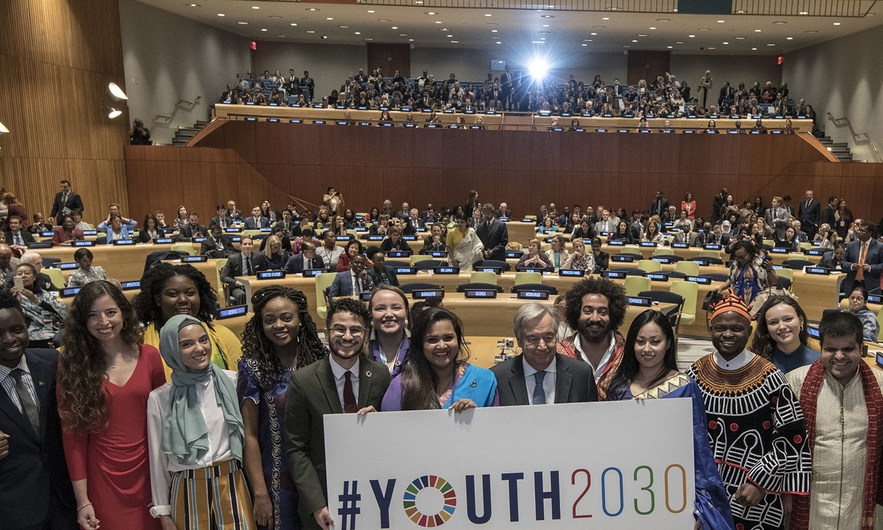Youth 2030 initiative aims to empower youth to face challenges such as lack of employment, lack of education, violence and armed conflicts, climate change, in addition to the transformation of the labor market.
Image: UN
United Nations Secretary-General António Guterres launched a new initiative to guarantee that all young people go to school and have employment opportunities by the year 2030.
Youth 2030 initiative aims to increase efforts to meet the needs of young people, protect their rights and recognize their roles as agents of change at the regional, national and global levels.
UN expects that governments, academia, the private sector, international organizations, and society support this initiative.
Guterres stated that youth face critical challenges such as lack of employment, lack of education, violence and armed conflicts, climate change, in addition to the transformation of the labor market.
UN Secretary-General added: “if we are to create a more peaceful, sustainable and prosperous world for all, to fulfill the vision of the 2030 Agenda for Sustainable Development, we need young people to lead.”
Five characteristics of the Young 2030 strategy
-
Open new ways to attract and involve young people and amplify their voices.
-
Provide access to education and health services.
-
Prioritize the economic empowerment of young people through the promotion of training and employment.
-
Guarantee the rights of young people and promote their civic and political commitment.
-
Improve support for young people in conflicts and humanitarian crises
To conclude, Guterres announced the creation of the “Generation Unlimited,” a multi-stakeholder initiative that aims to ensure secondary education and learning skills; employability and decent work; and the empowerment of youth.
This article from Observatory of the Institute for the Future of Education may be shared under the terms of the license CC BY-NC-SA 4.0 
)
)











)
CONECTA
CONECTA
CONECTA